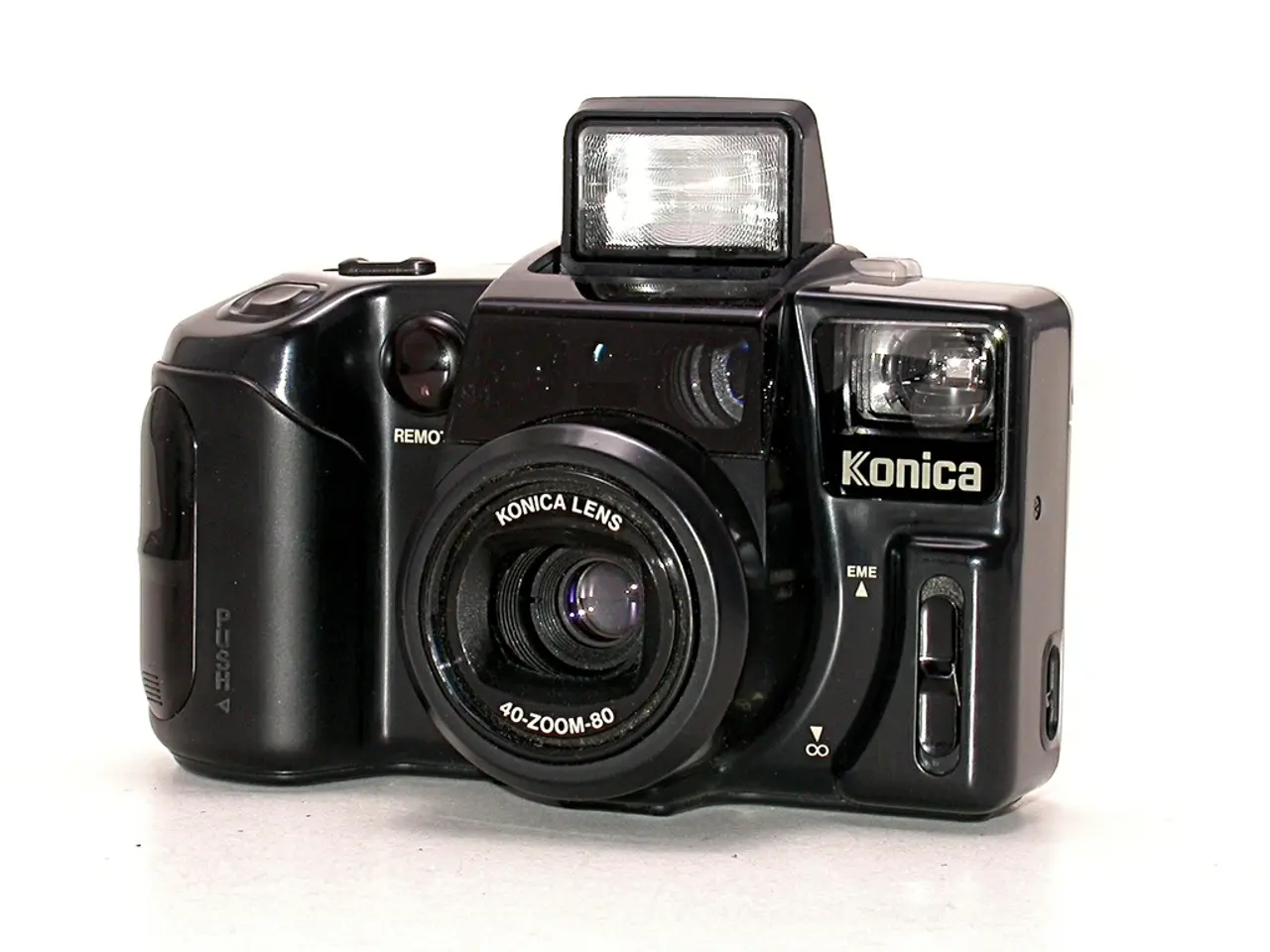Film photographers Spielberg and Lynch at odds over traditional vs modern photography debate
David Lynch and Steven Spielberg's contrasting views on film versus digital cinematography
In the world of filmmaking, the debate between traditional film and digital technology has been a long-standing one. This is particularly evident in the perspectives of two renowned directors, David Lynch and Steven Spielberg, who have historically held contrasting views on the subject.
Spielberg, a celebrated advocate for shooting on film, describes it as a "chemical miracle" that imparts a living quality to the image through natural grain and an unpredictable, organic look. He notes that the grain has a "swimming" quality that makes even still subjects appear alive [1]. This reverence for film is rooted in its traditional craftsmanship and visual authenticity, which Spielberg has publicly defended even amid the rise of digital technology [2].
Conversely, David Lynch has been more dismissive of film in recent years, calling it a "completely ridiculous dinosaur" [3]. He has expressed his disdain for film photography, citing its susceptibility to scratches, breakage, and inconsistencies as reasons for his preference or acceptance of digital filmmaking [3]. Despite his deep visual style and surreal imagery, often achieved with film historically, Lynch appears to embrace the changing technologies in cinema [2].
These differing views were on display during the production of Spielberg’s 2022 semi-autobiographical film The Fabelmans, where Lynch made a cameo as John Ford, the legendary film director. Interestingly, the film itself visually honours traditional film elements, such as incorporating an iconic moment of early 8mm home movie projection, underscoring Spielberg’s love for the tactile feel of film photography [1].
Despite their contrasting views, both directors have mutual respect for each other, as evidenced by their collaboration on The Fabelmans. This dynamic reflects broader industry debates but is shaped uniquely by their personal histories and artistic priorities [2][1].
In a separate interview, James Artaius, a shooter for Olympus, Canon, and Hasselblad, and head of Digital Camera World for 7 years, expressed his particular fondness for instant cameras. Artaius has 25 years of experience as a journalist and has been involved in product testing and shooting ad campaigns for Olympus, as well as clients like Aston Martin Racing, Elinchrom, and L'Oréal [4].
References:
[1] The Guardian. (2022, November 24). The Fabelmans review – Steven Spielberg's autobiographical masterwork. Retrieved March 23, 2023, from https://www.theguardian.com/film/2022/nov/24/the-fabelmans-review-steven-spielbergs-autobiographical-masterwork
[2] The Hollywood Reporter. (2022, November 16). Steven Spielberg and David Lynch on Their Unlikely Friendship and Collaboration. Retrieved March 23, 2023, from https://www.hollywoodreporter.com/movies/movie-news/steven-spielberg-david-lych-the-fabelmans-interview-1235139125/
[3] The Telegraph. (2006, October 22). David Lynch: film is a nightmare. Retrieved March 23, 2023, from https://www.telegraph.co.uk/culture/film/3588381/David-Lynch-film-is-a-nightmare.html
[4] Digital Camera World. (2021, September 13). Meet the team. Retrieved March 23, 2023, from https://www.digitalcameraworld.com/uk/about/team
- In a world dominated by digital technology, Film photography, with its distinctive natural grain and organic look, remains cherished by some, like legendary director Steven Spielberg, who views it as a "chemical miracle."
- Conversely, acclaimed director David Lynch, known for his deep visual style and surreal imagery, has bemoaned the persistence of traditional film, referring to it as a "completely ridiculous dinosaur."
- James Artaius, an experienced journalist and camera technician, has a particular affinity for instant cameras, having worked with brands like Olympus, Canon, and Hasselblad.
- The world of mirrorless photography and videography continues to evolve, with development in technology leading to advancements in lens quality and review processes, offering filmmakers more choices and creative freedom.




